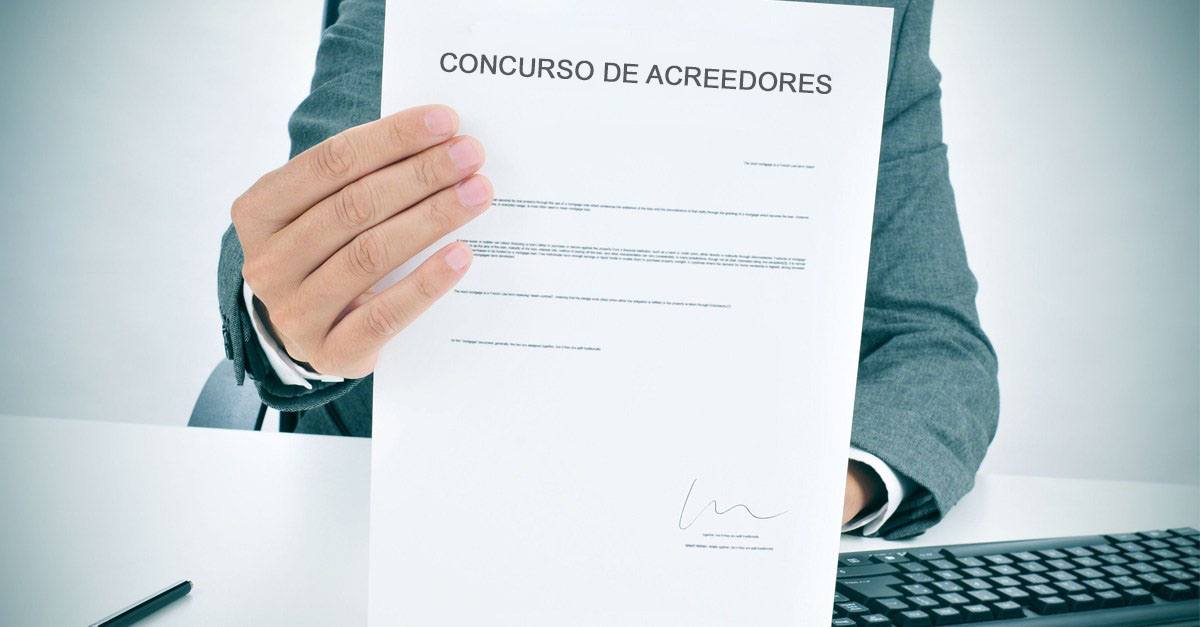Who, when and how is the bankruptcy requested?

With the uncertain times we are experiencing due to the COVID-19 health crisis, many people are wondering what will happen once the state of lockdown is lifted alarm, in what situation their businesses or companies will be left and if they will be able to face the start-up period.
When a company or self-employed person is facing financial difficulties and cannot or will not be able to regularly comply with their enforceable obligations, that is, regularly pay the debts they have, it is time to start a bankruptcy process.
The bankruptcy proceedings try to find a solution to the debtor’s state of insolvency. The Bankruptcy Law includes among its articles a procedure through which an attempt is made to renegotiate with creditors, making efficient use of resources in order to achieve the viability of the business or company, that is, its continuity is sought whenever possible.
Who can file for bankruptcy and when?
To be able to apply for bankruptcy, both the debtor and any of the creditors are entitled, as well as the bankruptcy mediator when the out-of-court payment settlement procedure has begun.
In any case, the debtor has the obligation to request the declaration of bankruptcy within two months from the date on which he knew or should have known of his state of insolvency. In principle, every debtor should be aware of when they are in a situation in which they cannot meet their obligations regularly, but establishing this date precisely presents difficulties. For this reason, there are cases in which the insolvency situation is legally presumed and therefore the obligation to request bankruptcy. Since in the case of not requesting it within the period of two months established for it, the contest could be declared guilty.
It is presumed that the debtor has known of his insolvency status, unless proven otherwise, when there is a general breach of the following obligations:
- Payment of tax obligations during the three months prior to the application for the bankruptcy.
- Payment of Social Security contributions during the same period.
- The payment of salaries, indemnities and other compensation to workers for the last three monthly payments.
Puede interesarte:”Asesoría Legal frente al COVID-19”
It may interest you:”Legal Advice in front of to COVID-19”
How do you file for bankruptcy?
If the bankruptcy is requested by the debtor, he must state in his declaration request whether his state of insolvency is current or imminent. We are facing a current insolvency when the debtor is unable to regularly comply with his enforceable obligations, while the insolvency will be imminent when the debtor anticipates that he will not be able to regularly and punctually comply with his obligations.
Along with the bankruptcy application, the debtor must also provide a report containing his economic and legal history of the last three years, as well as the causes of the state in which he is find and the assessments and proposals on the viability of your assets.
In the event that the individual debtor is married, he must also indicate this in the memorandum, with the identity of his spouse and the matrimonial property regime
If the debtor is a legal person, the report must include the identity of all the partners or associates, the administrators or liquidators and the accounts auditor, it must also leave proof if it is part of a group of companies and the place it occupies in the business group.
It must also include an inventory of assets and rights, detailing their acquisition value and the estimated current value, and indicating the encumbrances and charges that affect these assets and rights. As well as a list with the staff of the workers and the representative body in the event that there is one.
You must also include a list of creditors, where their identity, address, as well as the amount of the debt and the expiration dates appear. In addition, if any creditor had initiated a legal claim for payment, he must identify the procedure and the status of the proceedings.
Legal obligation to keep accounts
In the event that the debtor has a legal obligation to keep accounts, he must also provide:
- Annual accounts and management or audit reports for the last three years.
- The memory of significant changes in heritage.
- Interim financial statements prepared after the presentation of the last annual accounts.
- The annual accounts and the consolidated management report for the last three years and the audit report, in the event that the company forms part of a group of companies.
If the debtor cannot provide any of the aforementioned documents, they must express it in their application.
In the event that the bankruptcy request is made by one of the creditors, you must state the title or fact on which your request is based, as well as provide documents accrediting the credit that it has against the debtor, where the origin, expiration, dates of acquisition and current situation of the same are established.
Once the application has been submitted, it will be examined by the judge who will decide whether to accept it or not.
It may interest you:”Lawyers specialized in Bankruptcy Law”






